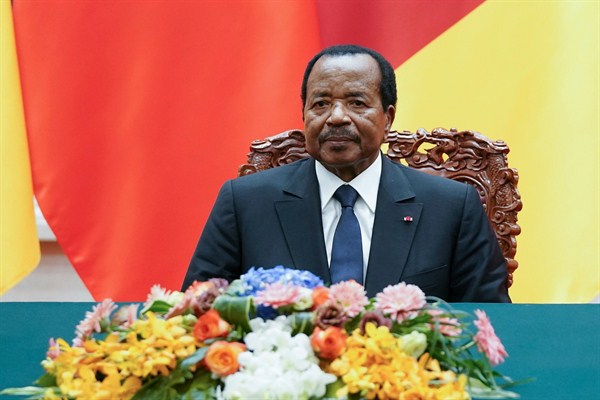When Cameroon’s 85-year-old president, Paul Biya, announced on Twitter earlier this month that he would be running for a seventh consecutive term in October, it was a chance for the world to marvel anew at his remarkable longevity.
Biya came to power 36 years ago, taking over for Ahmadou Ahidjo, Cameroon’s first president. Though the transfer was amicable, the two men were soon engaged in a power struggle that forced Ahidjo into exile. He would later be sentenced in absentia to life in prison for allegedly plotting against Biya, and he never returned, dying in Senegal in 1989.
The Ahidjo saga marked the beginning of a pattern in which Biya, who is sometimes called Cameroon’s “Lion Man,” has either co-opted potential challengers or found ways to defang them, often through criminal proceedings. Ten years ago, he also neutralized the main institutional threat he faced when he scrapped the presidential term limit, making it easier for him to rule as long as he desired.

